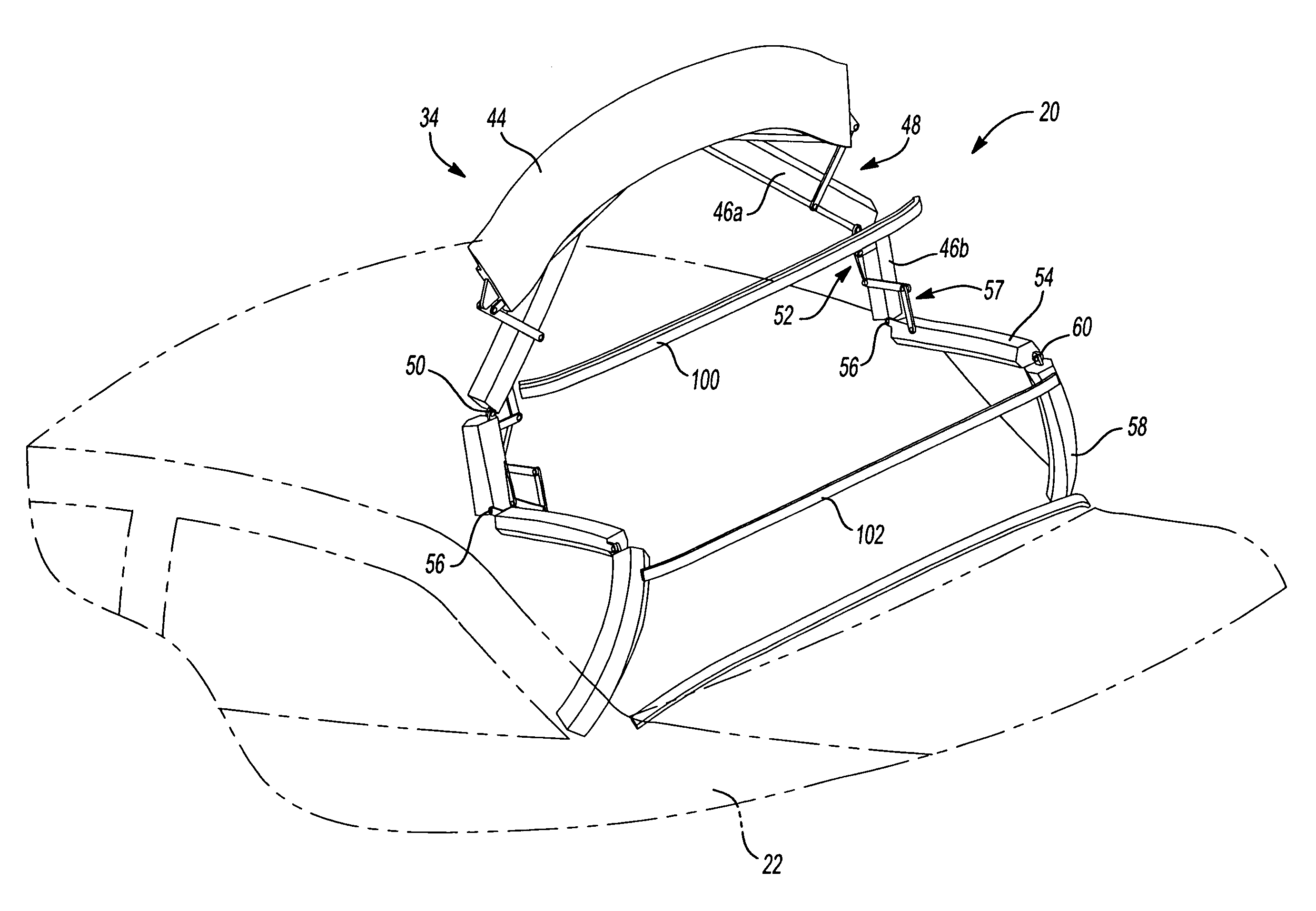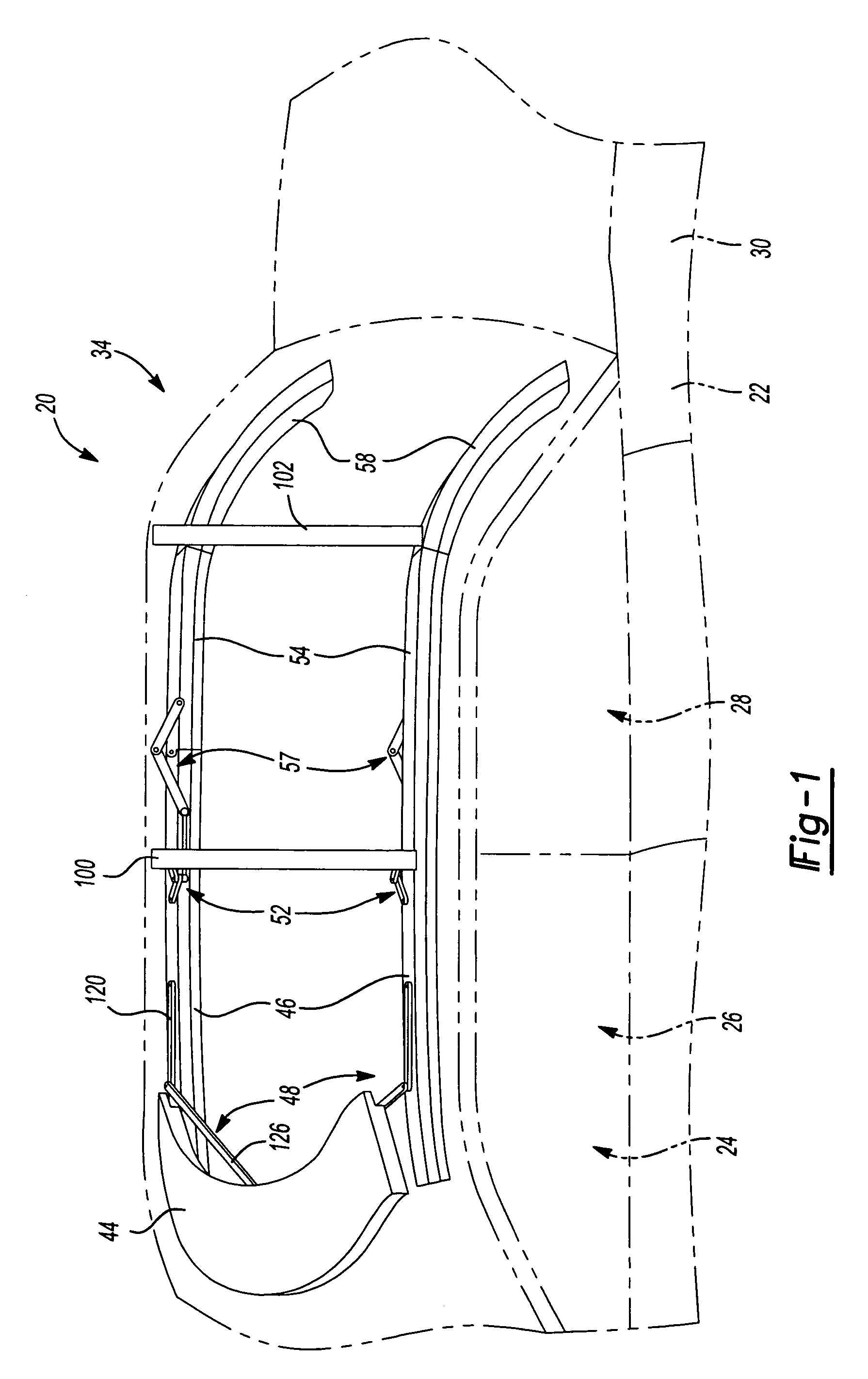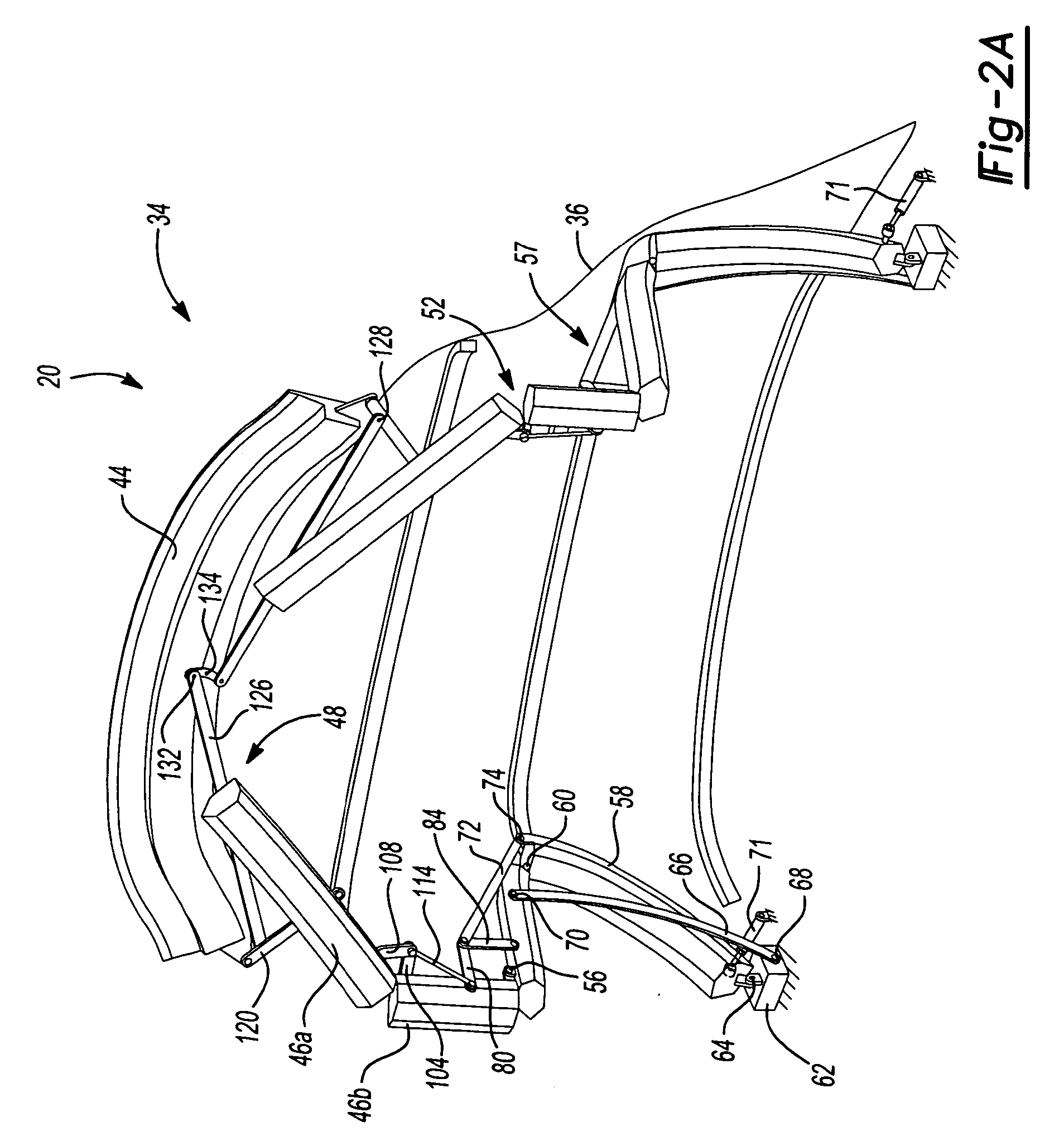In-folding convertible roof
a convertible roof and convertible technology, applied in the field of convertible roofs, can solve the problems of presenting the difficulty of packaging (stowing), and increasing the difficulty of packaging, so as to increase the size of the passenger compartment and/or the size, minimize the packaging space, and maximize the available space
- Summary
- Abstract
- Description
- Claims
- Application Information
AI Technical Summary
Benefits of technology
Problems solved by technology
Method used
Image
Examples
Embodiment Construction
[0023]The following description of the preferred embodiment is merely exemplary in nature and is in no way intended to limit the invention, its application, or uses. As used herein, the term “substantially perpendicular” allows for some limited deviation from 90°, such as 90°±5°.
[0024]FIGS. 1-5 show an alternate embodiment of an in-folding convertible roof 20 according to the principles of the present invention. Convertible roof 20 is employed on an automotive vehicle 22 having a passenger compartment 24 with front and rear passenger seating areas 26, 28 and a generally U-shaped bootwell or stowage compartment 30. Stowage compartment 30 is positioned aft of passenger compartment 24 with quarter trim portions extending along a portion of sides of passenger compartment 24. Convertible roof 20 is of the type utilizing a folding or top stack mechanism 34 and a roof cover 36 (shown in FIG. 2A only) and is operable between a fully raised position, as shown in FIG. 1, through intermediate ...
PUM
 Login to View More
Login to View More Abstract
Description
Claims
Application Information
 Login to View More
Login to View More - R&D
- Intellectual Property
- Life Sciences
- Materials
- Tech Scout
- Unparalleled Data Quality
- Higher Quality Content
- 60% Fewer Hallucinations
Browse by: Latest US Patents, China's latest patents, Technical Efficacy Thesaurus, Application Domain, Technology Topic, Popular Technical Reports.
© 2025 PatSnap. All rights reserved.Legal|Privacy policy|Modern Slavery Act Transparency Statement|Sitemap|About US| Contact US: help@patsnap.com



